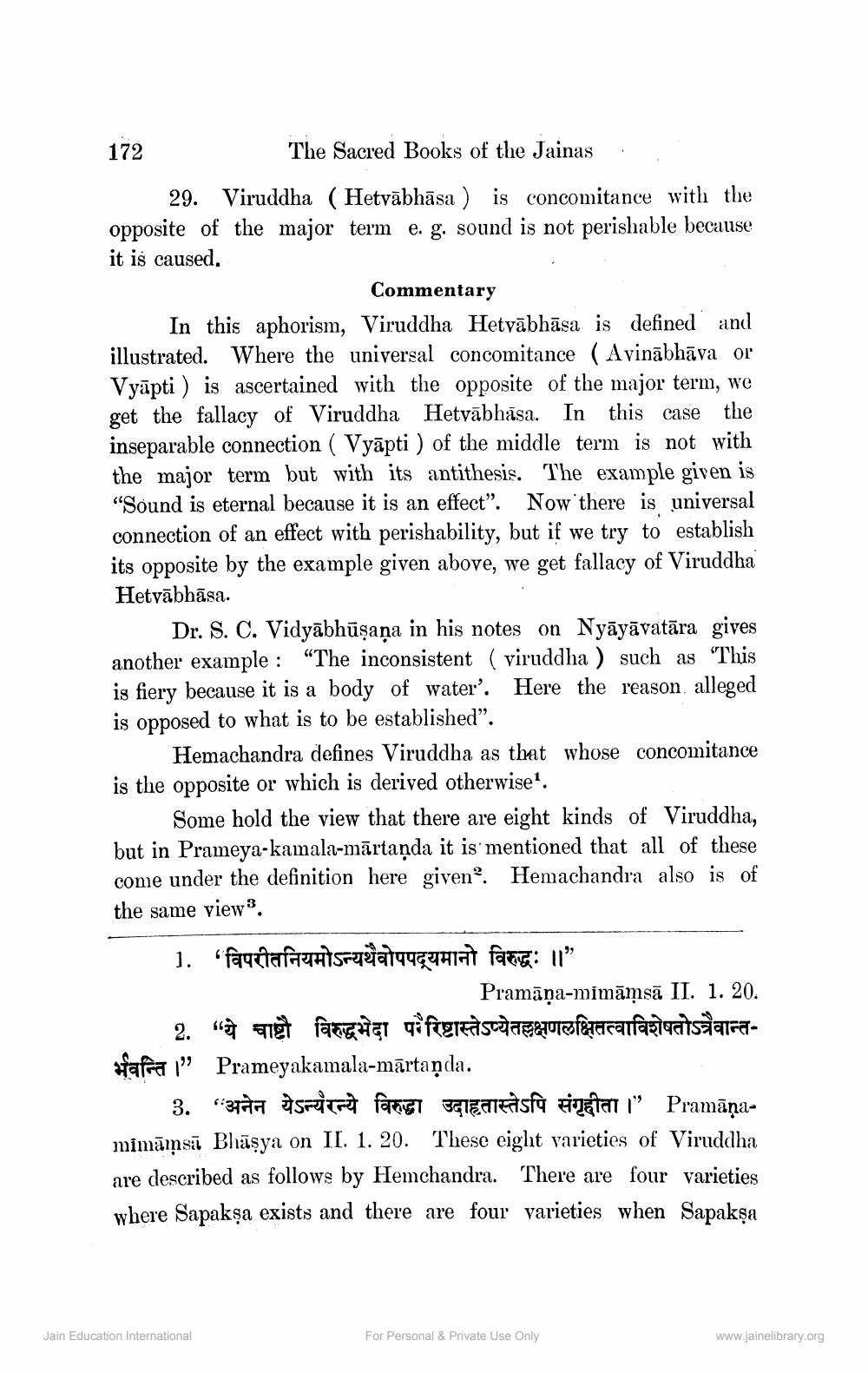________________
172
The Sacred Books of the Jainas. 29. Viruddha (Hetvābhāsa ) is concomitance with the opposite of the major term e. g. sound is not perishable because it is caused.
Commentary
In this aphorism, Viruddha Hetvābhāsa is defined and illustrated. Where the universal concomitance ( Avinābhāva or Vyāpti ) is ascertained with the opposite of the major term, we get the fallacy of Viruddha Hetvābhāsa. In this case the inseparable connection ( Vyāpti ) of the middle term is not with the major term but with its antithesis. The example given is "Sound is eternal because it is an effect”. Now there is universal connection of an effect with perishability, but if we try to establish its opposite by the example given above, we get fallacy of Viruddha Hetvābhāsa.
Dr. S. C. Vidyābhūşaņa in his notes on Nyāyāvatāra gives another example : "The inconsistent ( viruddha ) such as This is fiery because it is a body of water'. Here the reason, alleged is opposed to what is to be established".
Hemachandra defines Viruddha as that whose concomitance is the opposite or which is derived otherwise'.
Some hold the view that there are eight kinds of Viruddha, but in Prameya-kamala-mārtaņda it is' mentioned that all of these come under the definition here given? Hemachandra also is of the same view3. 1. "faqatalaanishaziatqueghiat faria: Il"
Pramāņa-mimāmsā II. 1. 20. 2. “ये चाष्टौ विरुद्धभेदा परिष्टास्तेऽप्येतल्लक्षणलक्षितत्वाविशेषतोऽत्रैवान्तsfarar " Prameyakamala-mārtaņda.
3. "pata Spirit farasi Giganeasfà fizetat " Pramāņamimāmsī Bhāșya on II. 1. 20. These eight varieties of Viruddha are described as follows by Hemchandra. There are four varieties where Sapakşa exists and there are four varieties when Sapakşa
Jain Education International
For Personal & Private Use Only
www.jainelibrary.org




